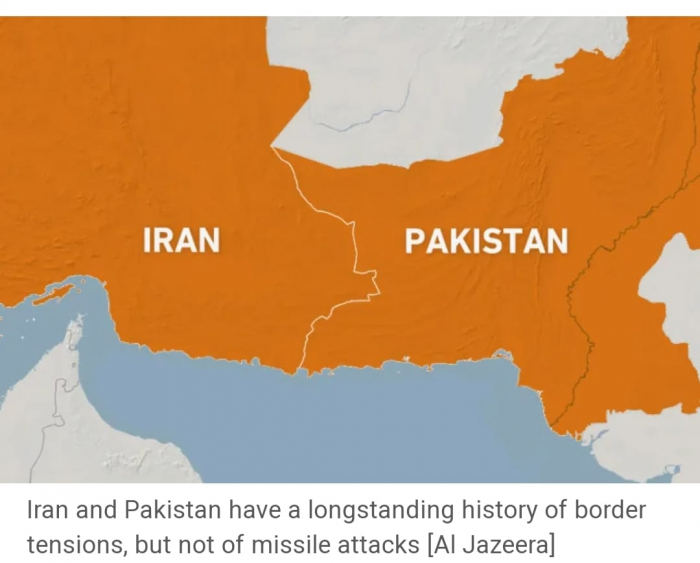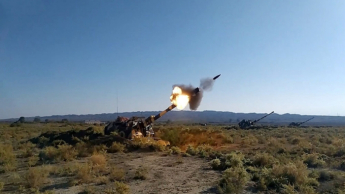Iran and Pakistan Strikes: Beyond News

|

Unfortunately, Iran's recent attacks on Pakistan have forced it to act accordingly and immediately, as national security was directly threatened. Iran's past secret operations and malign activities in Pakistan mirror its current cross-border operations in the region. It seems that the Axis of Resistance is now feeling the pressure in the Middle East, which was one of the driving forces behind this violation that polluted the concepts of international law and mutual respect.
The ongoing deadly encounters in the Red Sea and the Israel-Hamas war are creating serious threats to regional peace, progress, and stability. The blue economy has already been marginalized, and regional countries like Egypt, Jordan, and India are feeling the impact.
Regional security experts were shocked by the unprecedented air strikes conducted by Iran and Pakistan. These strikes also worsened diplomatic ties between the two countries, leading to the cancellation of all diplomatic and political activities.
China urges calm and offers mediation. The Chinese Foreign Ministry spokeswoman, Mao Ning, at a regular press conference, highlighted China's commitment to playing a constructive role in de-escalating the situation, should both sides wish it. She expressed the hope that the two sides can exercise calm and restraint to avoid an escalation of tension. Even Turkey has requested that both countries refrain from any further military misadventures.
The spillover effects of the ongoing Israel-Hamas war have raised the threat of violence spreading in the greater Middle East. The Iranian attacks in Iraq and Syria, primarily targeting US military bases and Israeli spy centers, do not justify its attacks within Pakistan's territories. The real motives are still unknown; however, the indirect sequence of events strongly indicates that the attacks were purposeful and well-planned.
The recent visit of Indian Foreign Minister Subrahmanyam Jaishankar to Tehran during the attacks, the departure of the Iranian ambassador to Pakistan the day before the attacks, and the ongoing close contacts between Iranian agencies and India's RAW have raised suspicions. Moreover, conspiracy theories even suggest that a mad race to test the effectiveness of air defense systems was one of the key reasons for these untimely and dangerous maneuvers, which violated the concepts of international law, sovereignty, and territorial integrity.
After the Iranian attacks, the Foreign Ministry of Pakistan issued a strongly worded condemnation. The Iranian strike killed two innocent children and injured three girls in parts of Balochistan. Unfortunately, Iran's unwise attacks have severely damaged bilateral ties in terms of common security, secret information sharing, joint fight against terrorism, and efforts to combat drugs and human trafficking in the short term. The attacks also raised security concerns among the member countries of the SCO, which has certain SOPs and a platform to jointly fight against terrorism.
Iran's so-called high claims of targeting two bases belonging to Jaish al Adl, allegedly in Pakistan, lack concrete evidence and justification, a wake-up call for our policymakers and security apparatus in the country. Pakistan’s government had no choice but to respond urgently. According to reliable sources, many dormant agents and sleeper cells have been arrested across the country, and Pakistan’s Air Force initiated “Operation Marg Bar Sarmachar,” striking terrorist hideouts in Iran’s Sistan Balochistan province. They used killer drones, rockets, and other modern weaponry to hit the hideouts of the BLA and BLF. According to ISPR, terrorists, mainly Dosta Alias chairman, Bajar, Sahil, Asghar, and Wazir, were targeted.
It was an intelligence-based operation that ultimately eliminated several terrorists. Even Colonel Hossein Ali, a senior IRGC commander in Sistan Balochistan, was killed by unknown assailants.
Iranian attacks in Balochistan were indeed anti-international law, anti-diplomatic norms, and anti-regional peace and stability. They have socio-economic, geopolitical, and geostrategic repercussions for both sides and the region. Therefore, both sides should show restraint and avoid acts that create serious security threats.
Geographically, both countries share a volatile border, stretching about 900 kilometers, with Pakistan’s Balochistan province on one side and Iran’s Sistan and Baluchestan province on the other. This border has been a major concern for peace and security due to increasing terrorist activities.
The Iranian attacks sparked anger in Pakistan, which called the strike an egregious violation of international law and the spirit of bilateral relations between Pakistan and Iran. Iran’s state-sponsored Tasnim news agency reported that it targeted strongholds of the Sunni militant group Jaish al-Adl, known in Iran as Jaish al-Dhulm, or Army of Justice.
Jaish al-Adl operates on both sides of the Iran-Pakistan border and has previously claimed responsibility for attacks against Iranian targets. Its ultimate goal is independence for Iran’s Sistan and Balochistan province.
Pakistan retaliated two days later with what it called “a series of highly coordinated and specifically targeted precision military strikes” on several alleged separatist hideouts in Sistan and Baluchestan. Pakistan stated that it had long complained about separatist fighters having safe havens in Iran and was forced to take matters into its own hands with the recent strikes. The arrest of Kul Bhushan Jadhav, an agent of India's Research and Analysis Wing (RAW) operating from Iranian soil, had previously damaged the spirit of mutual confidence and sparked a diplomatic row.
Furthermore, the Pakistani government has conveyed serious concerns about the presence of numerous terrorist groups in Iran, which has responded inadequately. Many leaders of Baloch terrorist organizations are reportedly hiding in Iran.
Even countries in Central Asia and the South Caucasus have serious concerns about Iran's role in destabilizing regional peace and stability through secret activities, including arming and sponsoring. Many regional security experts believe that the larger regional conflict may have motivated Iran to be more proactive in pursuing targets beyond its borders. The day before the strikes in Pakistan, Iran launched ballistic missiles at Iraq and Syria, claiming to target a spy base for Israeli forces and anti-Iran terror groups. These hostilities reflect Iran's efforts to cement its role as a leader in the region and strengthen its axis of resistance.
Jaish al-Adl is just one of many separatist groups operating within Iran. It was originally part of a larger Sunni militant group called Jundallah, which fractured after its leader was executed by Iran in 2010. Jundallah had sponsorship from global movers and shakers to use against Iran. The group often targets Iranian security personnel, government officials, and Shia civilians.
To conclude, Iran’s strikes on Pakistan created a diplomatic spat, with Pakistan recalling its ambassador from Iran and suspending all high-level visits. After Pakistan’s strikes, Iran demanded an immediate explanation from its neighbor. The US State Department spokesperson, Matt Miller, highlighted Iran's violation of the sovereign borders of three of its neighbors in just the past couple of days and termed it a danger to regional peace and stability.
Pakistan’s subsequent strike on Iranian soil shows it has decided to respond with more than just diplomatic repercussions because national security is at stake, which requires a proportional response.
Interestingly, both sides issued statements after their respective strikes that hinted at a desire not to see things escalate, which is a good omen. The role of China is paramount in de-escalating the situation by mediating between the two sides. The euphoria of proxies and the power game should not siege regional peace and stability. Political and diplomatic sanity should prevail, and both sides should avoid any further military misadventures. Both sides should use diplomatic channels to calm the situation. Lastly, smoking guns should be silenced.
The author of the article is an Executive Director: The Center for South & International Studies (CSIS) Islamabad.
(If you want to contribute and have specific expertise, please contact us at [email protected])
The Rocket and Artillery formations of the Azerbaijan Army conduct live-fire exercises in accordance with the combat training plan for 2021, the Ministry of Defense of Azerbaijan told Baku Tribune.
LAST NEWS





.jpg&h=67&w=67&zc=1&q=100)













